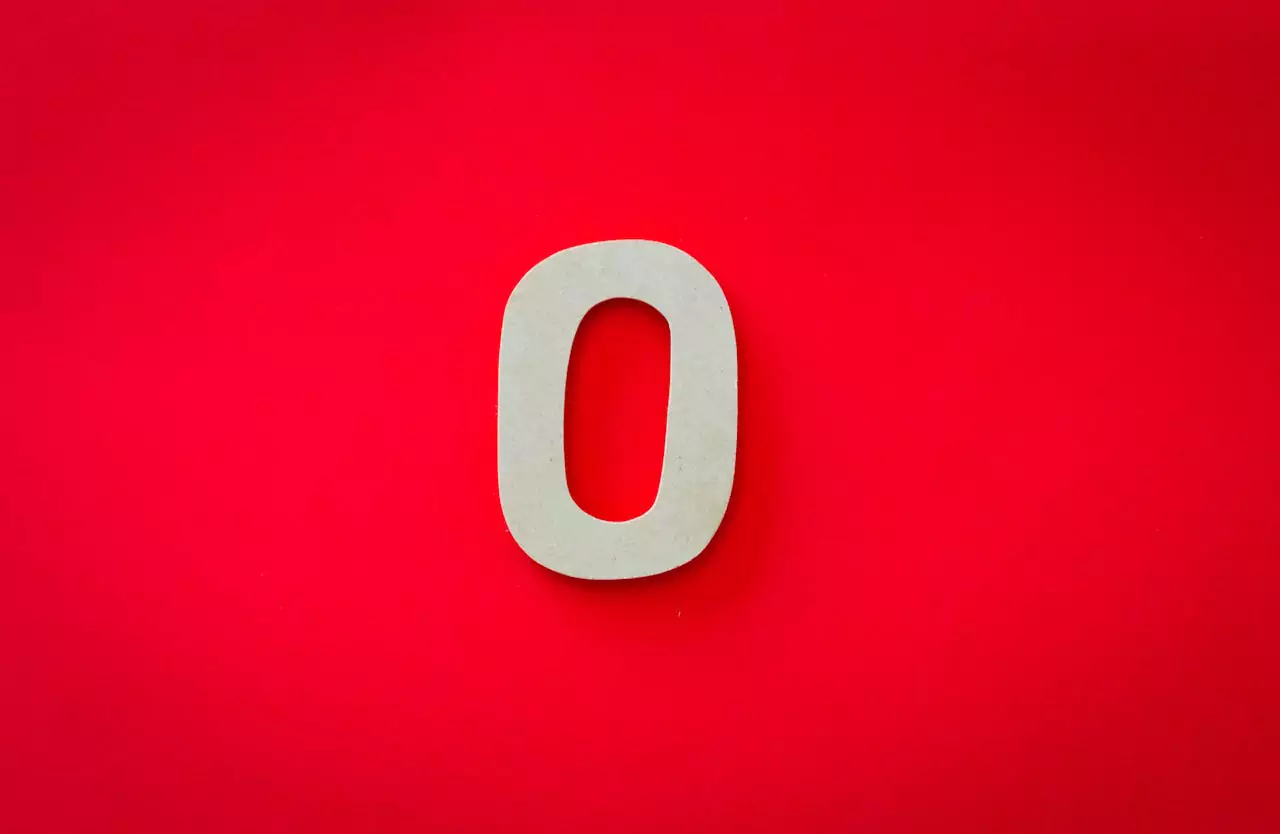Imagine trying to measure the temperature outside, and instead of saying “it’s zero degrees,” you say, “it’s… nothing degrees.” Or picture buying something for $10.00, but without zero, it’s… just ten-something? Strange, right? Zero might seem small and simple, but it quietly organizes a lot of our world. In fact, if zero hadn’t been invented, we’d be dealing with some pretty mind-boggling problems. So what would happen if zero wasn’t invented & how it would impact math, science, technology, and just about everything in our lives.
Table of Contents
Where Zero Came From (And Why We Should Be Grateful for It)
Zero didn’t start off with the full fanfare it deserved. The ancient Babylonians used symbols to mark an empty spot in their counting system, but it was really the 7th-century Indian mathematician Brahmagupta who gave zero its big break as a full-fledged number. He even gave it its own rules. From there, zero traveled through the Islamic world, into Europe, and eventually, everywhere else. Today, it’s hard to imagine life without it.
Expert Insight: Dr. Marcus du Sautoy, a mathematician at Oxford University, once said, “Zero is the most important digit ever invented. Without it, our understanding of the universe would be fundamentally different.”
Without Zero: Math Would Be a Mess
Math without zero? It’s like trying to bake a cake without flour—possible, but definitely not easy (and the results might be questionable). Zero is the backbone of everything from counting to calculus. Without it, some of our most basic calculations would be exhausting.
Counting and Place Value
In math, zero holds down the fort in place value. Imagine trying to write 105 without zero—there’d be no clear way to show “no tens” between 1 and 5. And big numbers like 1000? Without zero, it’s just “1” followed by… what? Roman numerals would make a comeback, but honestly, do we want to go back to trying to add things like “MMCDLX” for 2460? Without zero, even simple arithmetic would slow down, and we’d be back in the days of tally marks and stones.
Basic Math Operations Would be Confusing
Zero doesn’t just keep our place value system in check; it’s also the silent partner in basic math:
- Addition: Adding zero leaves the number as it is. Simple but powerful.
- Subtraction: Zero is the answer when you have equal quantities. It’s like saying, “I have nothing left to subtract.”
- Multiplication: Any number times zero is zero. It simplifies so many equations!
- Division: Sure, division by zero is “undefined” and throws off calculations, but without zero, even division rules would look strange.
Zero’s presence as the boundary between positive and negative numbers also keeps things in line. Without it, calculating things like altitude, temperature, and even banking would be a nightmare.
Algebra and Calculus? Good Luck!
Algebra would lose its most reliable friend: zero. Zero lets us solve equations like (x + 5 = 5) where we need a value to make everything balance out. Without it, we’d be stuck with far more complicated methods to find solutions.
Calculus? Forget about it. Calculus relies on zero to calculate rates of change—essential in physics, engineering, and almost any field involving motion or growth. Concepts like limits and derivatives use zero as a starting point, and without it, calculus might never have developed. The result? Slower progress in science and technology.
Science Without Zero: Where Would We Start?
Zero is foundational in science, especially in measurements and calculations. Without it, concepts in physics, chemistry, and astronomy would be hazy at best.
Temperature and Absolute Zero
Let’s talk temperature. Zero degrees Celsius tells us that water freezes, and zero Kelvin—known as absolute zero—is the coldest possible temperature. At absolute zero, particles stop moving entirely. Scientists need this baseline to understand matter at extreme temperatures, which has led to discoveries in fields like cryogenics and superconductivity.
Without zero, there’d be no starting point in temperature, and measuring cold would become abstract and confusing. So, if you love freezing popsicles in your freezer, thank zero for that clarity.
Relatable Example: Without zero Kelvin, researchers in cryogenics wouldn’t have the tools to advance medical technologies like organ preservation or MRI machines.
The Idea of a Vacuum
Zero even defines vacuums in space and science. A vacuum, or a space with zero particles, is key to understanding the universe and the behavior of objects without air resistance. Zero particles in a vacuum mean we can study gases, reactions, and objects in an environment free from interference. Without zero, defining or creating a vacuum would be much harder. Space exploration and physics research would suffer.
Technology and Computing Without Zero: It Would Be Like the Dark Ages
Our digital lives revolve around zero. Computers operate on binary code, which uses sequences of 0s and 1s to store and process information. No zero? No binary. No binary? No computers. Our phones, laptops, and even your smartwatch would cease to exist in their current form.
Binary Code and Digital Data
Binary code—made up of 0s and 1s—is the heart of computing. A zero in binary indicates “off,” while one indicates “on.” This simple system allows computers to store data, process commands, and communicate. Remove zero from the equation, and computers wouldn’t know how to function. It would be like trying to bake bread without heat.
Computers also use binary code for digital communication, making the internet, texting, and streaming possible. Every time you send a message or watch a movie online, zero is working behind the scenes to keep things running smoothly. Without it, we’d be back to paper and snail mail.
Fun Fact: Streaming a single movie requires millions of 0s and 1s working in harmony. No zero, no Netflix.
You May Like This: Powerful Lord Jagannath Blessings Quotes in English & Odia
Data Storage and Compression
Zero even makes data storage more efficient. It lets us use binary to store massive files, from documents to entire movies, in compact formats. Compression techniques rely on patterns of 0s and 1s to shrink data. No zero? Say goodbye to your USB drives and external hard drives.
Zero in Finance: A Balance Sheet Nightmare
Zero isn’t just a number—it’s a balancing act in finance. Zero signifies break-even points, no profit, or no loss, allowing us to track finances accurately.
Accounting Without Zero
In accounting, zero shows a balance between assets and liabilities, indicating stability or financial health. Without zero, businesses wouldn’t have a simple way to show financial stability. Accountants would scramble to find a way to show no profit or loss, which would make planning harder for individuals and companies alike.
Interest Rates and Loans
Zero also helps calculate interest rates and loan repayments. Zero-interest loans, for instance, mean paying back only what was borrowed. Without zero, understanding loans and repayments would become confusing, making financial decisions murkier.
Everyday Life Without Zero: Chaos in the Mundane
Zero quietly supports daily life. It’s there when we set our clocks, track the temperature, and even price our favorite snacks.
Time and Dates
Zero defines time. Midnight, shown as 00:00, is the start of a new day. It’s a clean slate, a marker we rely on to organize time and coordinate activities across time zones. Without zero, tracking hours, minutes, and time zones would be a headache.
Temperature Measurements
Zero degrees Celsius is the baseline for freezing water. Without this point, weather forecasting would lack a clear reference, and comparing temperatures would be difficult. Imagine the forecast: “Today is slightly colder than yesterday, but not freezing!”
Pricing and Discounts
Ever notice how many items are priced at $9.99 instead of $10? Zero affects consumer behavior, making items seem less expensive. Without zero, pricing would become less precise, making it harder for retailers to market effectively.
Zero in Culture and Philosophy: The Big Nothing
Zero isn’t just mathematical; it’s philosophical too. In many cultures, zero represents balance, emptiness, or even the idea of potential.
Eastern Philosophy
In Eastern philosophy, zero is often seen as a void or emptiness, a place of peace and potential. In Zen Buddhism and Taoism, zero encourages the concept of letting go. Hinduism also views zero, or “shunya,” as a representation of the cosmos and balance.
Western Symbolism
In Western culture, zero symbolizes a fresh start. Sports teams give athletes the number zero to represent a new beginning. Zero also represents “ground zero,” where something begins or resets. Without zero, our cultural understanding of beginnings and balance would be incomplete.
So, What’s Life Like Without Zero?
Without zero, our world would lack the simplicity and structure we often take for granted. Math, science, and technology would be difficult, if not impossible, to manage. Everyday life would be confusing, from tracking time to buying groceries. Zero is more than a number—it’s the invisible framework holding modern life together.
So next time you see a “0” on your clock, computer, or receipt, remember: that tiny symbol does a lot more heavy lifting than it lets on!
FAQs (Very Important Ones….You should know)
Is zero even or odd?
Zero is like that friend who doesn’t take sides—technically, it’s even! It divides evenly by 2, but it’s not positive or negative. Zero is Switzerland.
Can you divide by zero?
Nope! Trying to divide by zero is like trying to eat soup with a fork. Mathematicians say it’s “undefined.” Translation: it just doesn’t work.
What’s the point of zero in a phone number?
Without zeros, phone numbers would be very confusing. Imagine calling 123456789 without the “0” in area codes. You’d probably reach your grandma’s toaster instead of your friend.
Is zero a “real” number?
Yep, zero is as real as it gets! It’s the “chill” number that lets all the other numbers do their thing without taking up any space itself.
Why does zero cost less?
Zero loves a good deal! When items are marked $9.99 instead of $10, that zero at the end tricks our brains into thinking we’re saving. Sneaky, right?
Is zero lonely?
Not at all! Zero is everywhere—holding places, starting new days, balancing checkbooks. It’s got plenty of work and is the life of the (math) party.
If zero is “nothing,” does it really exist?
Deep question! Philosophers and mathematicians debate this. But as far as your bank account’s concerned, zero definitely exists (and might be a little too real sometimes!).




